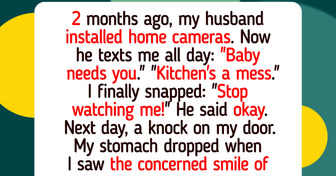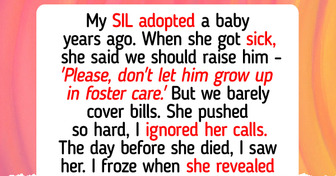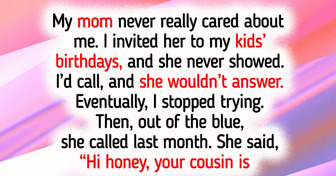I Funded My Wife’s Luxury Demands—She Made Me Regret Every Penny

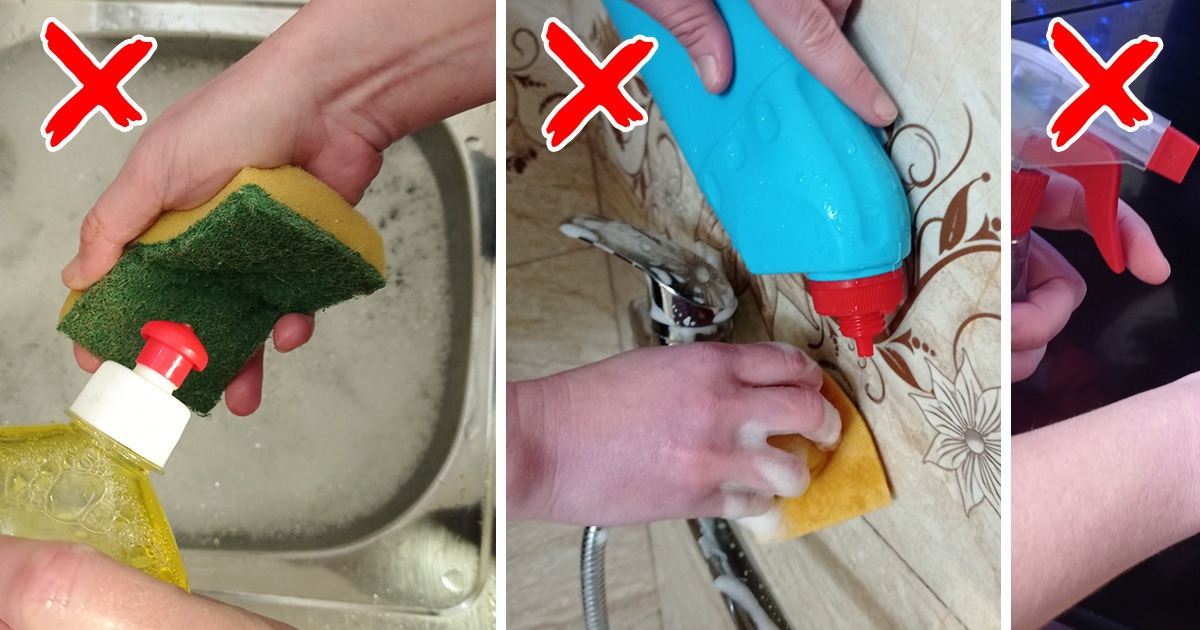
If you buy a specific cleaner for each surface in your house, sooner or later, the number of bottles and boxes will be uncountable. Another thing you should know is that many house cleaners can actually deal with many different surfaces. But using just 1 or 2 types of detergents for all surfaces is also a bad idea because you might ruin your stuff this way.
We at Bright Side decided to find out which cleaners shouldn’t be used for certain surfaces.
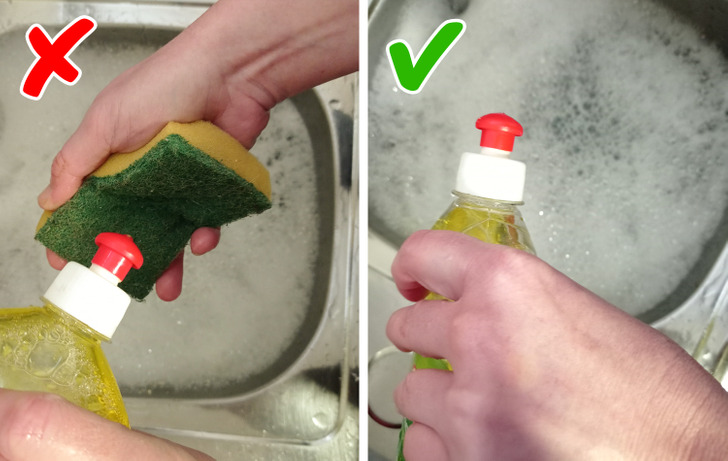
If you use too much dish soap, it can have the opposite effect. Some of the soap will remain on the surface of your dishes, and they will lose their shine. And the most unpleasant thing is that the soap might get into your body together with the food you eat.
Don’t dilute the soap right in the dispenser because bacteria might appear in the mix. It’s better to get some water into the sink and dilute the soap there. Put 1 teaspoon of soap into 1 liter of hot water.
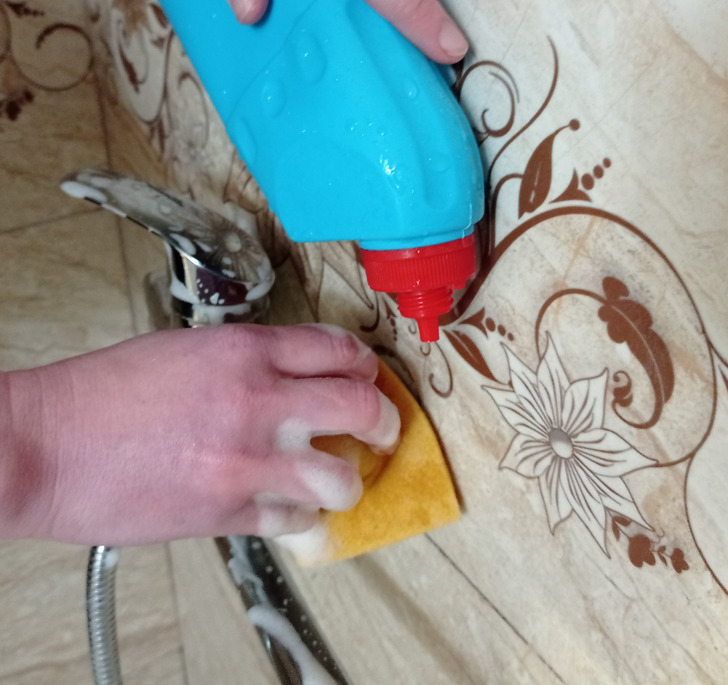
These cleaners are often used for everything at home, as they are good for disinfecting and killing different kinds of pathogens. But they are quite aggressive, so they can ruin some materials. Don’t wash tile with cleaners that contain chlorine — the surface will become dull.
Chlorine is also bad for metal. Stainless steel and copper might even react to chlorine and develop stains or rust. Don’t use bleach to get rid of rust either, as the stains will only become harder to remove.
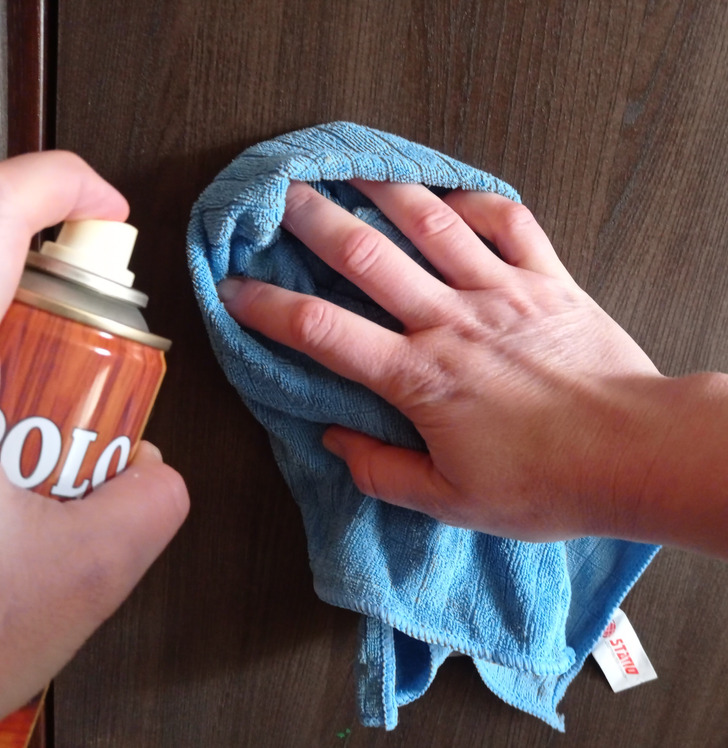
Liquid polishes come in 2 types: oil-based and emulsion cleaners that are water-based. Both are quite good at getting rid of dirt. But the oil-based types have a few downsides. First: they attract dust. And second, the oil changes color when it ages, it becomes yellow or even brownish, and it makes the furniture look dirty.
Laminated surfaces shouldn’t come into contact with polish. The polishes that contain oils or wax may leave stains and damage the protective layer of the material. Besides, they make the laminate sticky, which attracts dirt.
Many cleaners remain almost the same over time. This is why you can buy a lot of them. But this is not true for bleach and any chemicals that contain chlorine. Don’t keep an open bottle for more than 6 months because the liquid loses its disinfecting properties over time.
Besides, chlorine is not friends with hot water. High temperatures destroy the chemicals that make it effective. So, use either cold or barely warm water with this chemical.
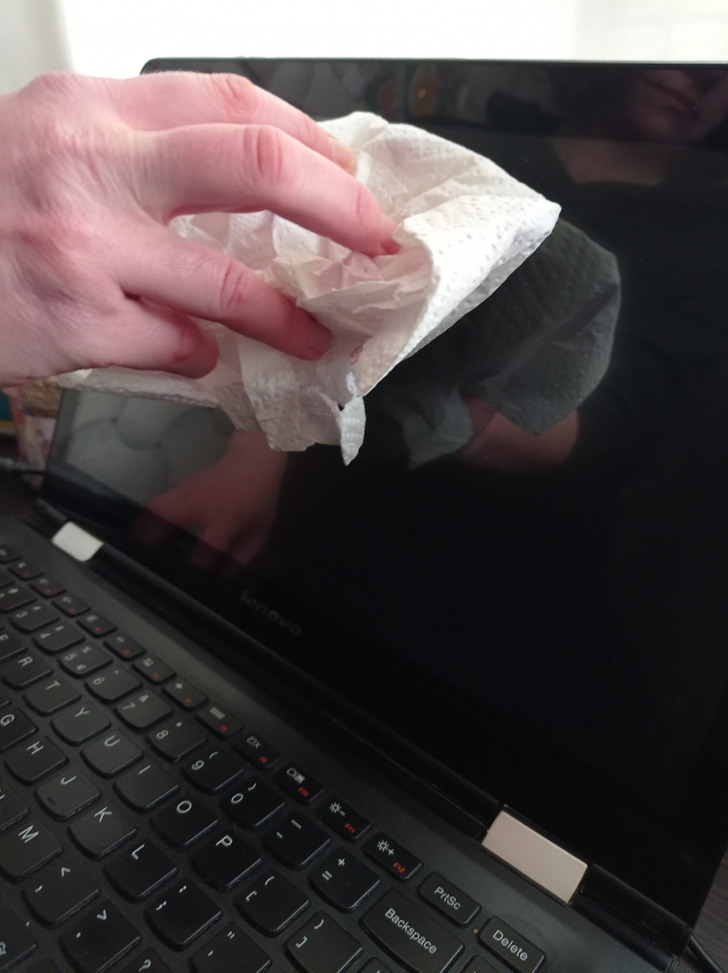
Paper towels are very useful for the kitchen. But you can’t use them for all of your home’s surfaces. They don’t always absorb water very well, so they can’t be very effective for cleaning tabletops and cutting boards.
Paper fibers are rougher than microfiber. So, paper towels may leave scratches on screens or even destroy the crystals if you press on the screen too hard.
Antibacterial wipes can’t be used for many surfaces. The liquid they are soaked in has a bad reaction when used on wood. Natural wood loses its shine, and because the liquid takes a long time to dry, tabletops, tables, and floors might be ruined.
You also shouldn’t clean leather with these wipes. The liquid might make the natural leather oils evaporate. As a result, the surface becomes dry and might crack.
Even though dish soap sometimes helps remove dirt from carpet or even gets rid of some stains, it actually does more harm than good. The remains of the liquid are sometimes absorbed by the fibers and make the carpet sticky. After that, more dirt and dust is attracted to the spot. It forces you to have to clean the carpet more often.
Dish soap also shouldn’t be used for Moka pots. The soap removes the thin oily layer inside the pot. And many coffee fans think that it’s this oil that makes coffee taste good.
Universal cleaners might ruin the appearance of some surfaces. If you use them when washing the floor or wooden furniture, the liquid will be absorbed by the material and the color will change.
You should be very careful with marble and copper. It’s better to test a new chemical on a small area to see if it stains.
A lot of cleaners contain scents. Many people think this is a good thing because the entire place smells nice. But some manufacturers use phthalates to add a smell to their products. Experts say that these chemicals are dangerous for your health.
A regular detergent that contains enzymes can’t be used for delicate fabrics. The ferments used in these detergents are supposed to remove protein and fat stains, but the chemicals themselves don’t see a difference in the proteins from dirt versus the proteins from material fiber, so these detergents can destroy the texture of silk and wool.
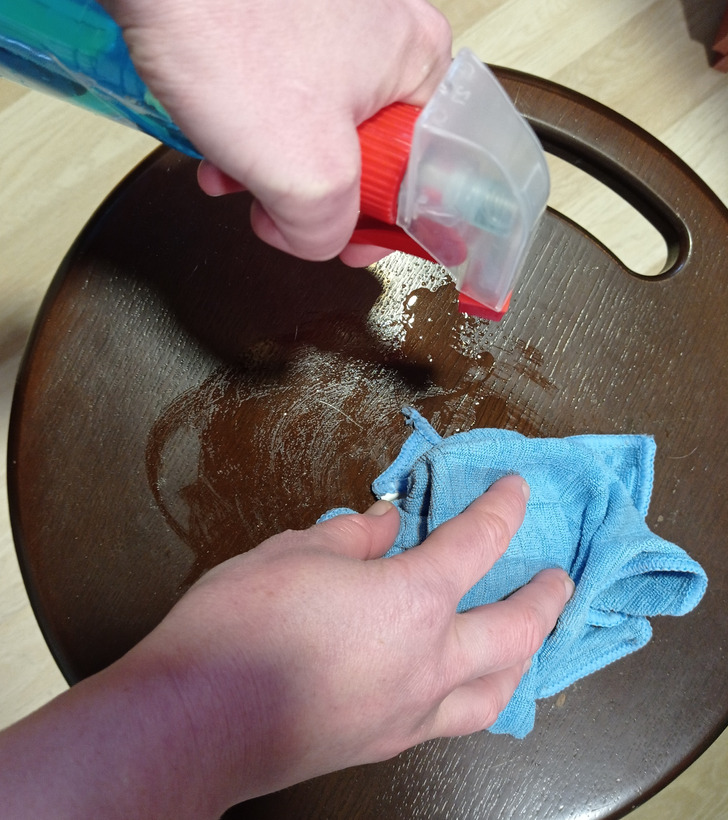
Glass cleaner is great for many other surfaces, but not wood. The chemicals in this cleaner may destroy the polish and the upper layer of varnish. It’s better to use a mix of white vinegar and oil to get rid of stains and make wooden surfaces shine.
Even though these cleaners are great at removing greasy fingerprints, don’t use them for cleaning screens. The active chemicals can do some terrible damage.
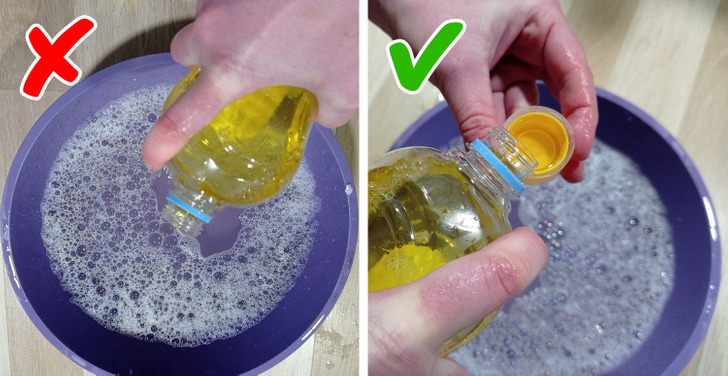
If you use too much of a detergent, you might actually achieve the opposite result. The excess liquid will remain on the surface and make it more sticky. Not only will dust and dirt be attracted to it, but it might even become a great environment for germs.
It’s important to not only choose the right detergent, but also to use it the way it’s meant to be used. Leave the detergent on the stain for 10-15 minutes and then start washing it. You will have put in less effort to get rid of a stain.
Do you prefer using store-bought or homemade products for cleaning?


